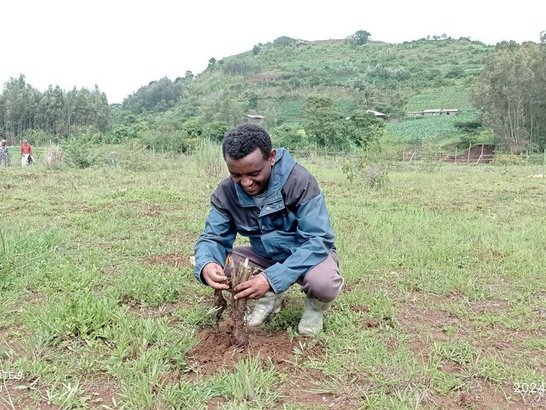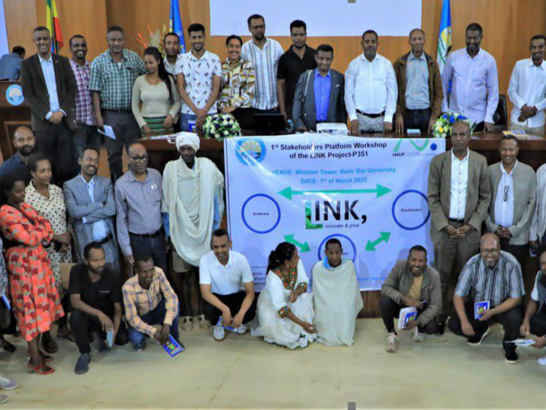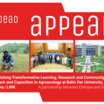Establishing Transformative Learning, Research and Community Outreach and Capacities in Agroecology at Bahir Dar University, Ethiopia | LINK

Project coordinator: Zerihun Yohannes Amare
Coordinating institution: Bahir Dar University (BDU)
Partner institutions: University College for Agrarian and Environmental Pedagogy (HAUP), Austria
Partner country: Ethiopia
Project duration: 1 May 2024 - 30 April 2027
Budget: EUR 269.988,74
Project Overview
The Lake Tana Basin in northern Ethiopia is the second largest sub-basin of the Blue Nile, covers an area of more than 15000 km2 and is the most important regional (and downstream) source of fresh water providing economic, social, political, environmental, ecological and religious benefits for the inhabitants in its surroundings. However, there are tremendous environmental challenges accompanied with poverty and food insecurity.
Climate change and high population growth rates are bond to further deteriorate the situation of inhabitants of the Lake Tana Basin.
Degradation of natural resources and challenges for inhabitants comprise sedimentation, clearing of wetland and destruction of natural breeding and feeding grounds for animals, improper damming, canalization of the tributaries, eutrophication, occurrence of, occurrence of toxic cyano bacteria and invasive species like water hyacinth, stakeholders conflict, poor waste (water) management, increased prevalence of waterborne diseases especially in the riparian communities (largely depending on raw water for drinking and recreation) as sanitation and hygiene coverage remains critical.
Given the central role of universities in social reproduction, and in the creation and legitimation of knowledge in general and specifically for development, current modes of research and HE has been criticized not to provide adequate approaches in response to solve these actual problems.
Bahir Dar University (BDU) offers with its MSc curriculum in Agroforestry a basis to form alumni capable to target these actual challenges even there are gaps to engage and improve the performance: Applied Agroecology components are missing and there is a lack in epistemic pluralism and localized research capacity resulting in neither trained staff to sufficiently handle the complex challenges and enable “the difference“, nor graduates enabled to engage and interact meaningful with complex real world phenomena in an Ethiopian setting, but perceiving and interpreting the real world phenomena in colonial epistemology. Resulting in the “every time the same approach” in imposing hierarchies and “bring the knowledge” in blue print formats to them (stakeholders) approach.
Based on the outcomes of a consultative workshop with stakeholders, the proposed LINK partnership programme therefore has been designed with the overall objective to build capacities at BDU by engaging meaningful, building on, transforming and especially linking existing structures (especially the existing MSc Curriculum in Agroforestry (AF)) towards a sustainable outcome content-wise, methodological-didactical and financially. The project team therefore intentionally decided to not re-invent the wheel in suggesting or building any new and may be redundant elements/institution (like a MSc curriculum in Agroecology (AE)), but to add-on, strengthen and improve already existing structures at BDU and link them innovatively.
Reporting

Report on the 1st project year | May 2024 - April 2025
The project started in May 2024 with a highly attended workshop that brought together representatives from different institutions and farming communities. A significant achievement was the first stakeholders’ workshop, which involved partners from education, disability, and gender sectors. In parallel, ten Farmer Family Learning Groups were established, ensuring gender balance and disability inclusion. These groups are preparing for hands-on agroecological training and food sovereignty practices in the coming months. On the academic side, the team published a comprehensive review paper on the contributions of agroforestry to food and livelihood security in Ethiopia.

